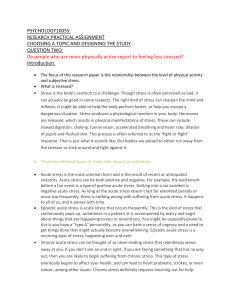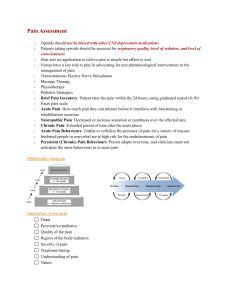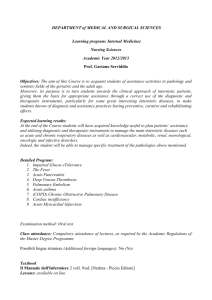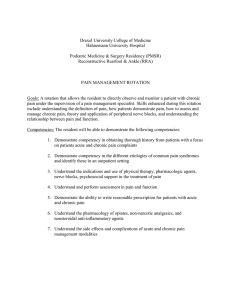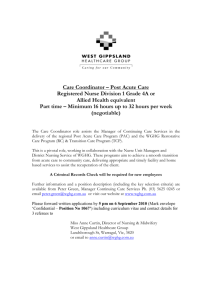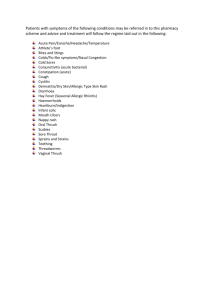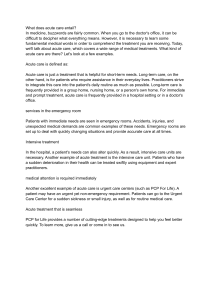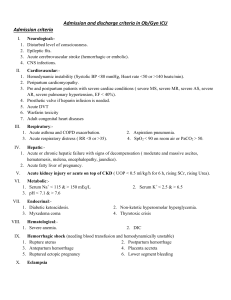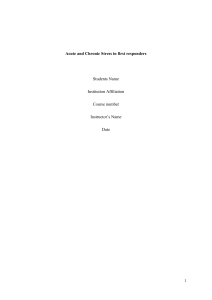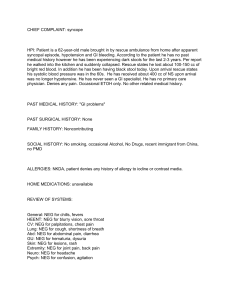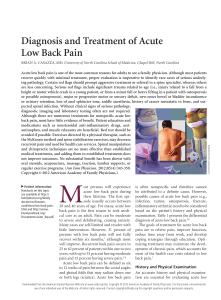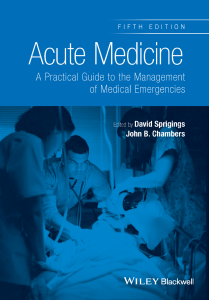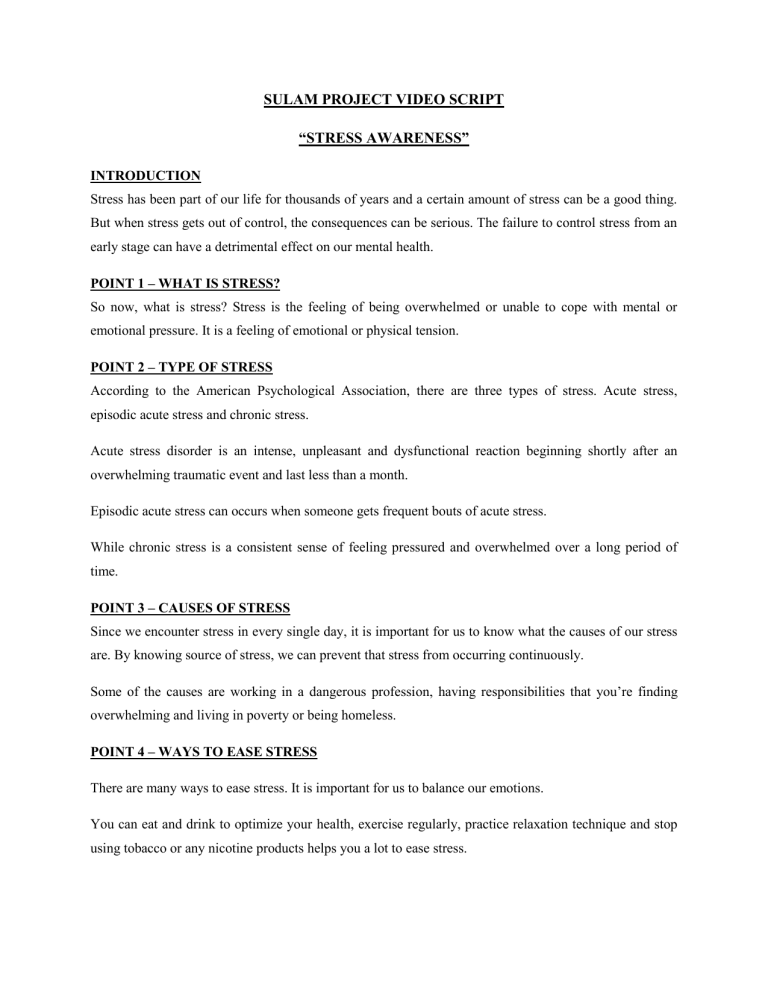
SULAM PROJECT VIDEO SCRIPT “STRESS AWARENESS” INTRODUCTION Stress has been part of our life for thousands of years and a certain amount of stress can be a good thing. But when stress gets out of control, the consequences can be serious. The failure to control stress from an early stage can have a detrimental effect on our mental health. POINT 1 – WHAT IS STRESS? So now, what is stress? Stress is the feeling of being overwhelmed or unable to cope with mental or emotional pressure. It is a feeling of emotional or physical tension. POINT 2 – TYPE OF STRESS According to the American Psychological Association, there are three types of stress. Acute stress, episodic acute stress and chronic stress. Acute stress disorder is an intense, unpleasant and dysfunctional reaction beginning shortly after an overwhelming traumatic event and last less than a month. Episodic acute stress can occurs when someone gets frequent bouts of acute stress. While chronic stress is a consistent sense of feeling pressured and overwhelmed over a long period of time. POINT 3 – CAUSES OF STRESS Since we encounter stress in every single day, it is important for us to know what the causes of our stress are. By knowing source of stress, we can prevent that stress from occurring continuously. Some of the causes are working in a dangerous profession, having responsibilities that you’re finding overwhelming and living in poverty or being homeless. POINT 4 – WAYS TO EASE STRESS There are many ways to ease stress. It is important for us to balance our emotions. You can eat and drink to optimize your health, exercise regularly, practice relaxation technique and stop using tobacco or any nicotine products helps you a lot to ease stress. POINT 5 – WHO IS MOST LIKELY TO GET STRESSED? There is one study by American Psychological Association about Gender vs Stress, stating that women are more likely to get stressed than man. But why? It is because their response to stress is different. Women have completely different hormonal system, which as a result causes them to react more emotionally and become more exhausted on an emotional level. POINT 6 – PHYSICAL SYMPTOMS Last but not least, you have to know sign and symptoms that you’re stress. There are 4 symptoms which are cognitive symptoms, emotional symptoms, physical symptoms and behavioral symptoms. Cognitive symptoms can be memory problems or poor judgment. For emotional symptoms, it can be feeling overwhelmed, loneliness and isolation. Physical symptoms usually might be chest pain and rapid heart rate and lastly behavioral symptoms could be eating and sleeping too much or less. CONCLUSION To sum up, stress is a common reaction, however when it becomes constant it can turn into a problem. A balanced lifestyle and coping strategies can help you manage stress. Issues that cause stress cannot always be resolved but changing your expectations of a problem may help. Get help before it’s too late.

